There’s a literal mountain of conservation books out there, and it can be a daunting task to know where to start. What conservation books are most inspiring?
As CEO of The Nature Conservancy, Mark Tercek knows the power of great conservation books. “When I joined TNC 10 years ago, I was smart enough to know that I had a lot to learn about conservation,” Tercek said. “I was delighted to learn of the enormous number of truly great books there are on these topics.”
Mark recently asked folks on Twitter what conservation books they found inspiring (check out some of the answers). As it turns out, there are a lot of nature book readers out there. As the book reviewer for Cool Green Science, I’m always looking for great conservation reads.
Both Mark and I were thrilled to see both timeless classics and new favorites on the list. Here are some we particularly love. Please leave your own choices in the comments or tweet them to Mark and me.
-
The Home Place: Memoirs of a Colored Man’s Love Affair with Nature
Drew Lanham
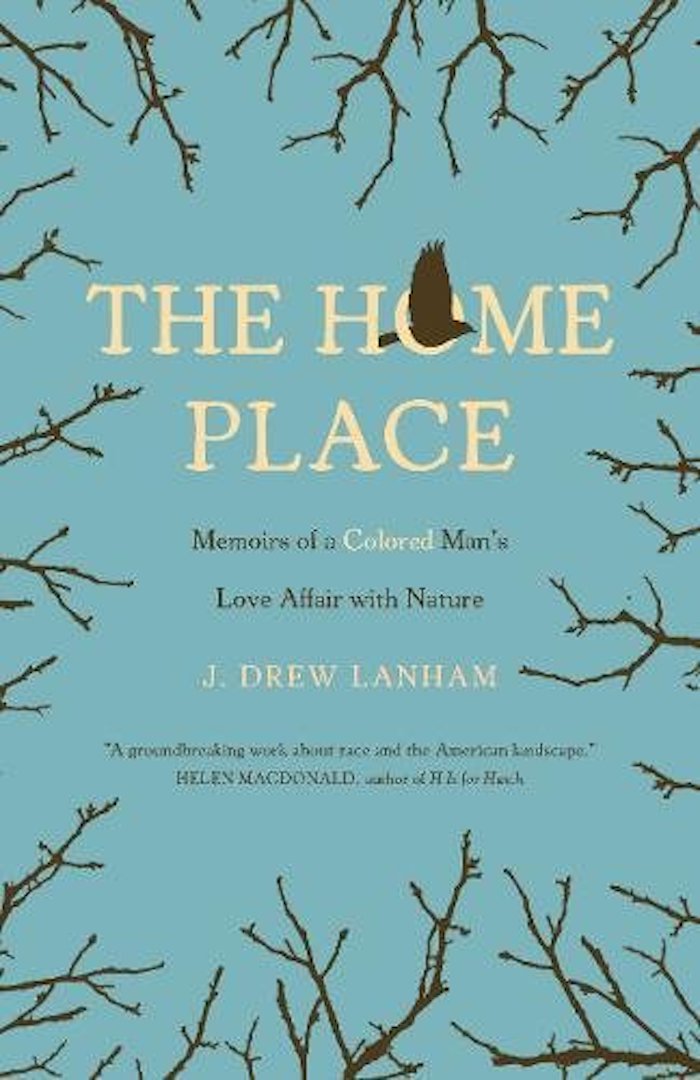
This is one of my favorite recent books, and I was happy to see that others agree, including Lynn Scarlett, the Conservancy’s Co-Chief External Affairs Officer & Climate Strategy Lead.
Lanham describes himself as a “rare bird, an oddity”: an African-American ornithologist who loves birding, hunting and exploring the land. His memoir explores the influences that led him to his land ethic and his career in science. It’s a story of family, of a rural childhood, of birds and academia and special places lost and found. (You should also read his article, 9 Rules for the Black Birdwatcher and his recent Cool Green Science essay, Land Rich and Cash Poor).
-
The Song of the Dodo: Island Biogeography in an Age of Extinction
David Quammen
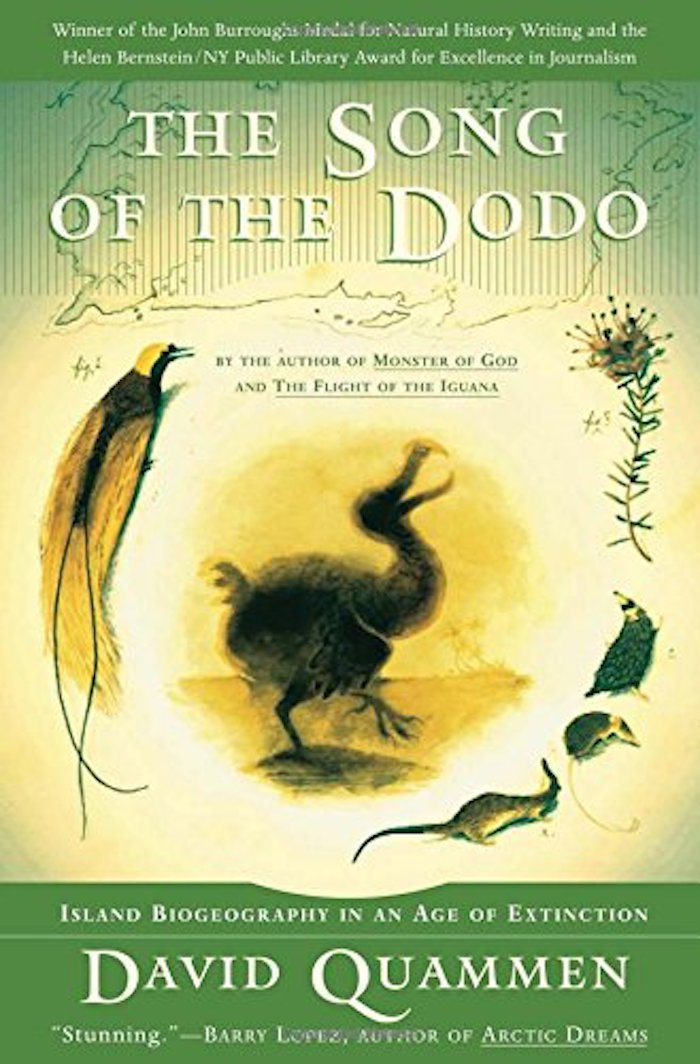
Mark and I are both David Quammen fans, and it appears a lot of Twitter users are, too. The Song of the Dodo is Quammen at his best, as he explains why evolutionary processes on islands can tell us a lot about the fate of biodiversity in our fragmented, human-dominated world.
The book begins with the expeditions of Charles Darwin and Alfred Russell Wallace, and then plunges into a worldwide tour of the fate of islands – and how human development has rendered even our national parks and protected areas into virtual islands. Few books will teach you more about key conservation principles.
-
The Remarkable Life of William Beebe: Explorer and Naturalist
Carol Grant Gould
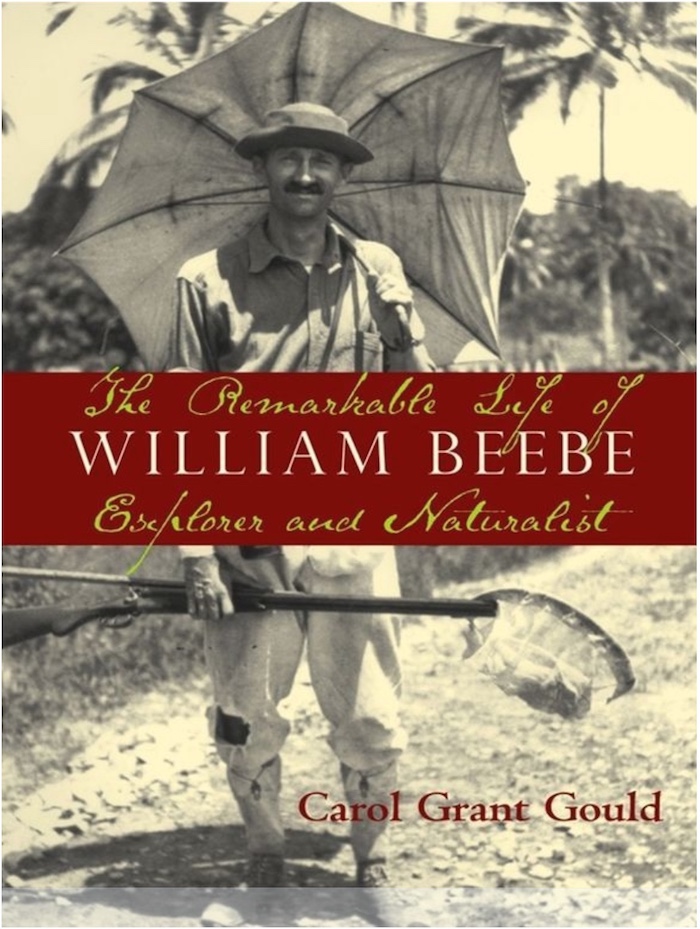
I frequently turn to The Well-read Naturalist for my reading recommendations, so I’m not surprised that his choice was one of my favorites. While today science is defined by specialization, William Beebe (1877-1962) did everything from scaling Himalayan peaks to trace the evolution of pheasants to pioneering deep sea exploration. In his day, he was a bestselling author; millions tuned in to his radio broadcasts from the deep ocean.
Carole Grant Gould does an excellent job presenting an accessible and fun biography of this biological Indiana Jones.
-
Reason for Hope
Jane Goodall
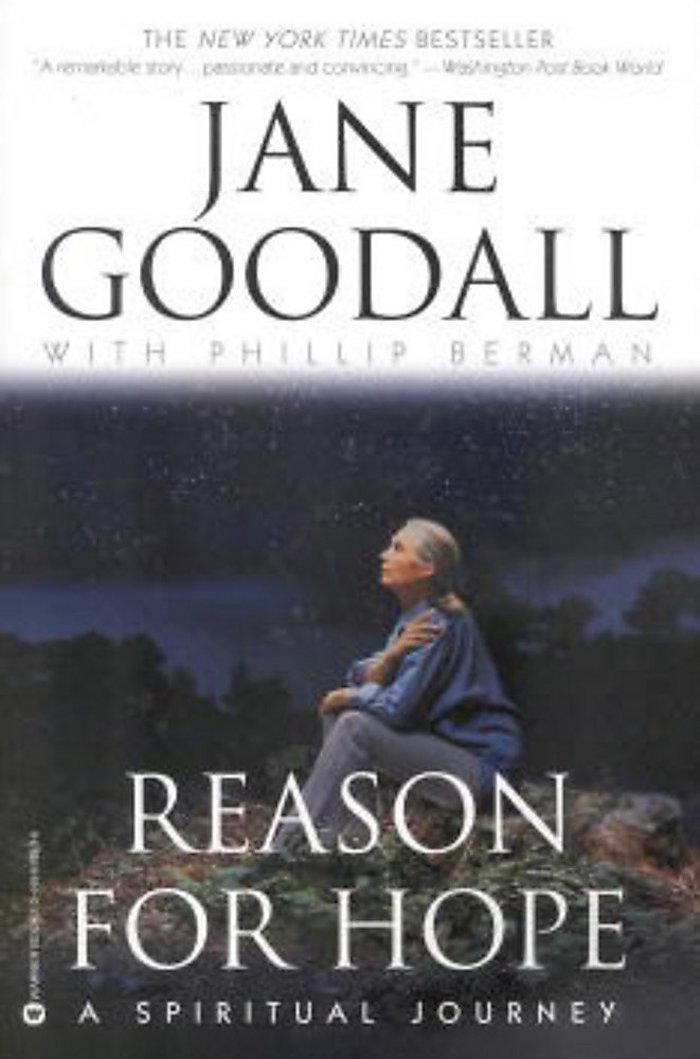
When National Geographic aired its first documentary about Jane Goodall’s work with chimpanzees in 1965, 20 million U.S. viewers tuned in. For perspective, that’s nearly twice as many as tuned in for the latest season finale of Game of Thrones.
Decades later, Goodall arguably remains the world’s most popular conservation leader. So it’s not surprising this book made the list, recommended by Twitter user LolaMarina. And this indeed is one of her best, a memoir that traces her own life’s journey and why she remains hopeful – and why hope, not despair, is vital for all of us if we are to succeed.
-
The Nature Fix: Why Nature Makes Us Healthier, Happier and More Creative
Florence Williams
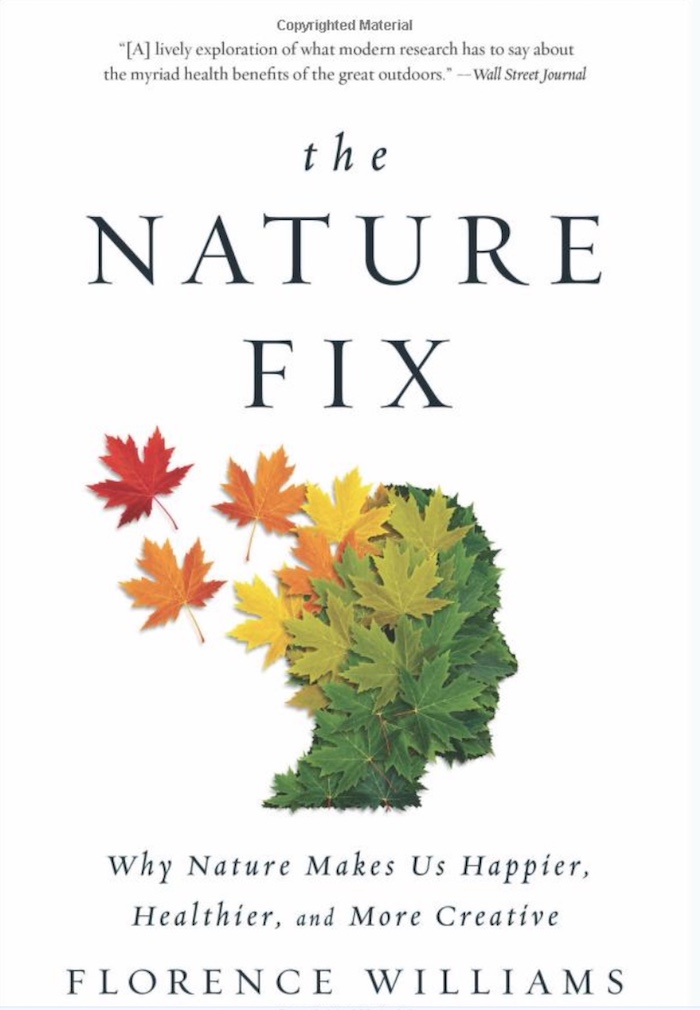
If you’re reading this blog, chances are you seek nature for some measure of solace or inspiration, whether it’s a walk in a park, pulling weeds in a garden or casting a line to trout. It turns out, there’s a scientific basis for nature’s healing powers, as top journalist Florence Williams reveals in The Nature Fix.
Williams draws on new research in a variety of fields to demonstrate how nature makes us healthier and happier. And it’s presented in a readable style filled with examples that will resonate (and provide inspiration). It’s not surprising that several respondents made this their top pick.
-
Desert Solitaire
Edward Abbey
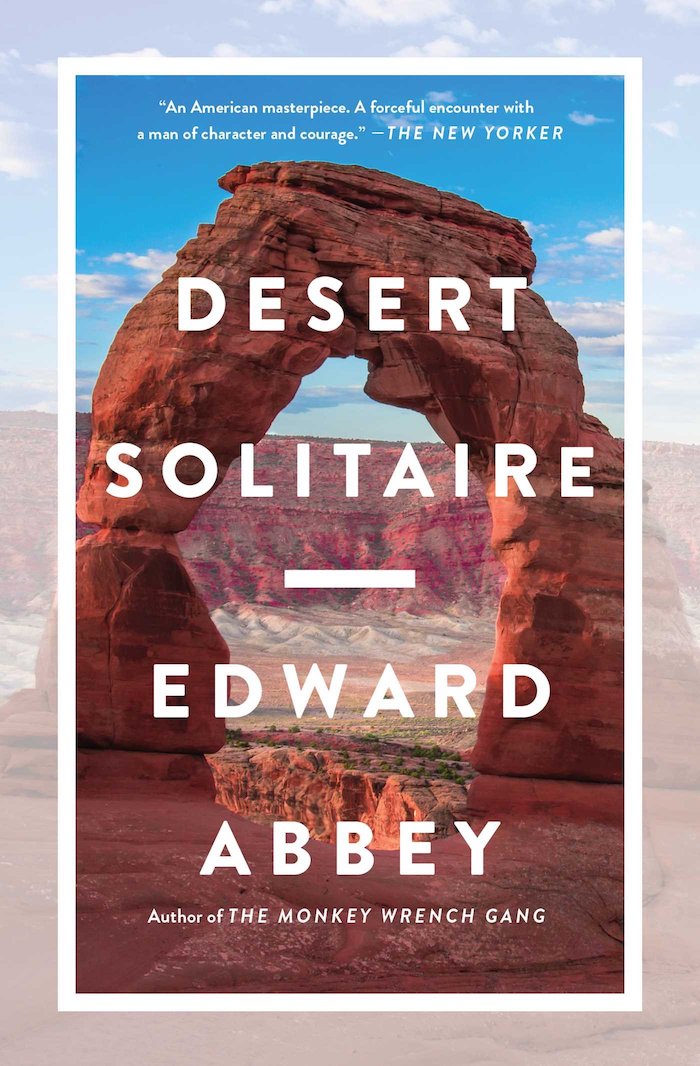
Desert Solitaire and other works by Edward Abbey frequently appear on lists like this. He is frequently quoted by fans and detractors, but I sometimes wonder if any of them have actually read the books.
Read this book and discover Abbey for yourself. He’s funny. He’s angry. Few describe the landscape of the desert Southwest better. The book is a collection of stories from Abbey’s time as a park ranger in southern Utah and northern Arizona. You won’t agree with everything. But underlying it all is Abbey’s conservation philosophy: “I stand for what I stand on.”
-
A Sand County Almanac
Aldo Leopold
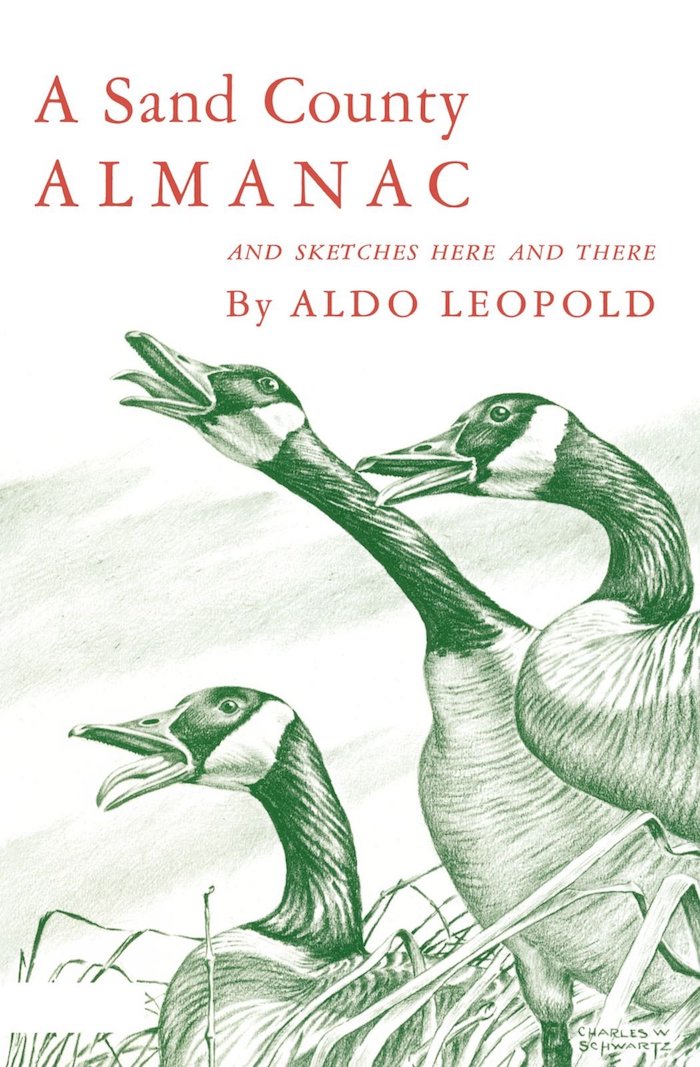
Another book that always makes these lists. That might suggest there’s nothing more to be said. Still: It remains the finest written work on the land ethic, on conservation, ever written. It has stood the test of time. Remarkably, it is as relevant today as when it was published in the 1940s.
Read it, ponder it, share it.




Two recs, equally good, both by Christina Eisenberg: the Carnivore Way or the Wolf’s Tooth
Although I’ve already read some of the books on the list, this is a good reminder that they are well worth re-reading. I look forward to reading the others now as well! Thanks!
Interesting list!
Let’s not forget Henry Beston’s “The Outermost House: A Year of Life on the Great Beach of Cape Cod.”
And for poetry, “The Wild Swans at Coole,” by William Butler Yeats…an extract:
The nineteenth Autumn has come upon me
Since I first made my count;
I saw before I had well finished,
All suddenly mount
And scatter wheeling in great broken rings
Upon their clamorous wings.
The swans, so beautiful, still spend winters in Ireland and summers in Iceland!
“Passion or conquest, wander where they will,
Attend upon them still.”
Thank you for the excellent list, which includes books new to me as well as old favorites. Could you please add books for kids that inspire them to become curious about the natural world and wise stewards of the Earth. I am the author of a series of eco mysteries for upper elementary and middle grades, so naturally I root (puns intended) for these young readers who will be our future decision makers.